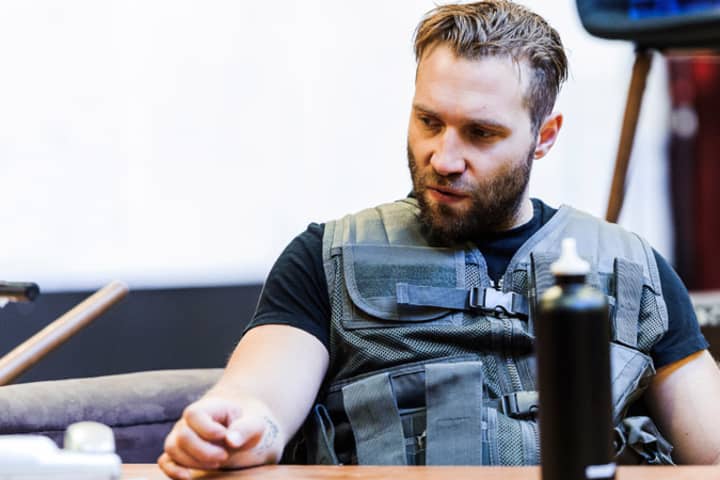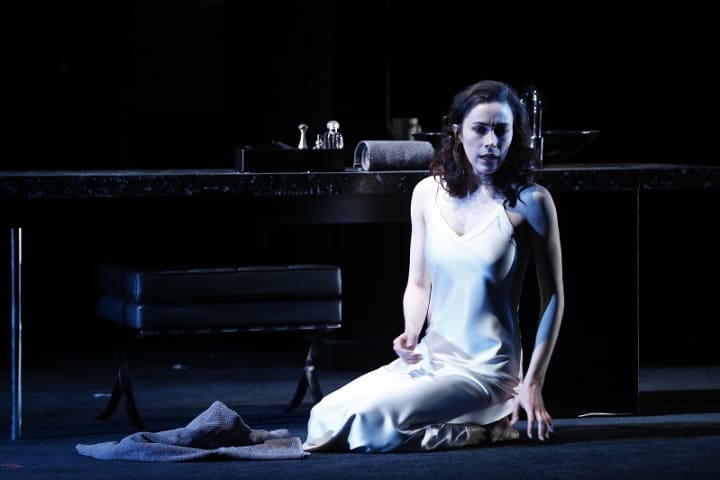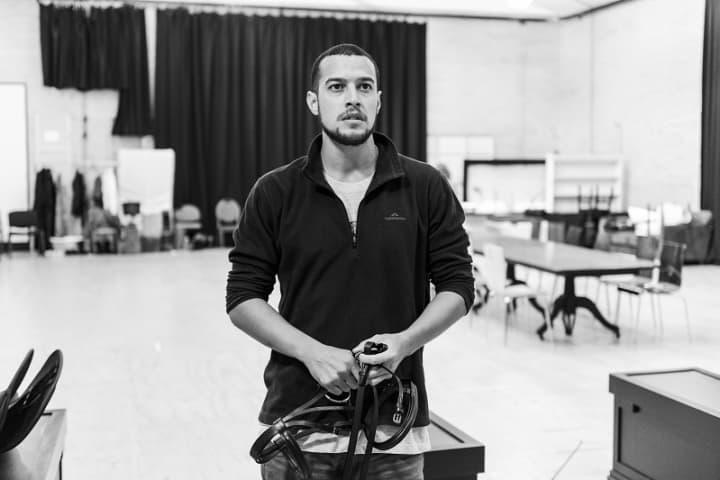Nick Schlieper tells us how to create the ruthless world of Macbeth with lights.
Can you describe the world of Macbeth through your eyes and lighting design?
The world of this particular Macbeth, is a pretty unpleasant feeling place. It’s predominantly cold, harsh and intense. It uses a lot of unsettling high contrast and chiaroscuro, to underline the shifting ground beneath the people’s feet and to keep the dramatic tension pitched at a high level.
Are there any unusual or bespoke lighting effects that you’re using in this production?
Most obviously for the apparitions in the fourth act. While projecting onto smoke is not entirely new, it’s relatively rarely used on stage, as there are a large number of variables involved. In short – it’s really difficult to pull off.
How would you describe your process? Where has your inspiration come from?
In this case, the majority of the inspiration has come from my usual go-to place: paintings. In particular, the great chiaroscurists like Carravaggio and De La Tour. Their paintings might depict people and situations from a very different time to this, but the way these works are “lit” is timeless!
You’ve worked with Simon on Shakespeare productions in the past. How is Macbeth similar/different?
Yes, a great many Shakespeares. Macbeth is in some ways inevitably similar, simply because we’ve approached it with the same set of collective tastes and experiences. But naturally, each play remains firmly its own animal. Macbeth would have to be one of the darkest texts of all and this self-immersion in unalleviated evil naturally shifts ones thinking. We canvassed a range of approaches to this production, but as ever, you can really only arrive at it by starting with the text and looking for the most meaningful way to render it for a given audience. So although there are obvious similarities with the subject matter of Richard III for example, we’ve landed in a very different place for Macbeth.
What is your favourite part of the production process?
There are ups (and downs) to all parts of it. Obviously, sitting in the theatre and finally getting to paint the stage is a great moment, but I also really enjoy watching rehearsals. It’s great to see the thing that you’ve discussed in theory for such a long time, finally start to take shape in the mouths and bodies of actors. And often, the very first conversations that take place when the whole production is still a blank slate of potentialities are a fascinating part of the process. And then reality comes crashing in.
Macbeth plays at Southbank Theatre from 5 June. Book now.
Published on 7 June 2017





